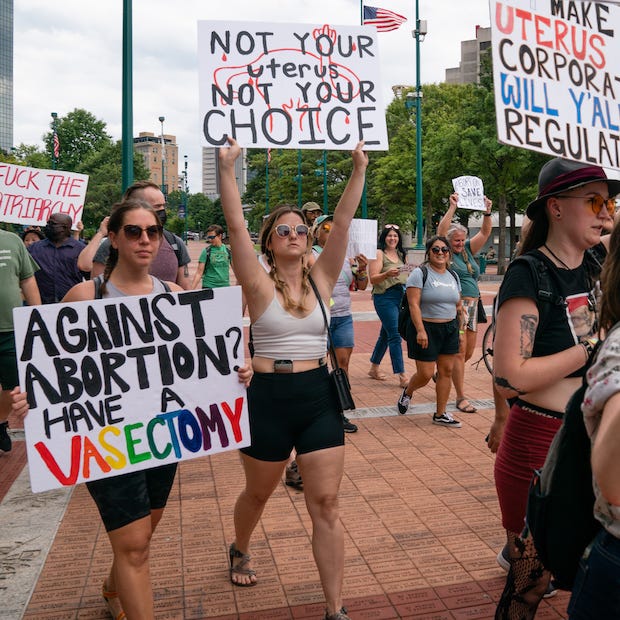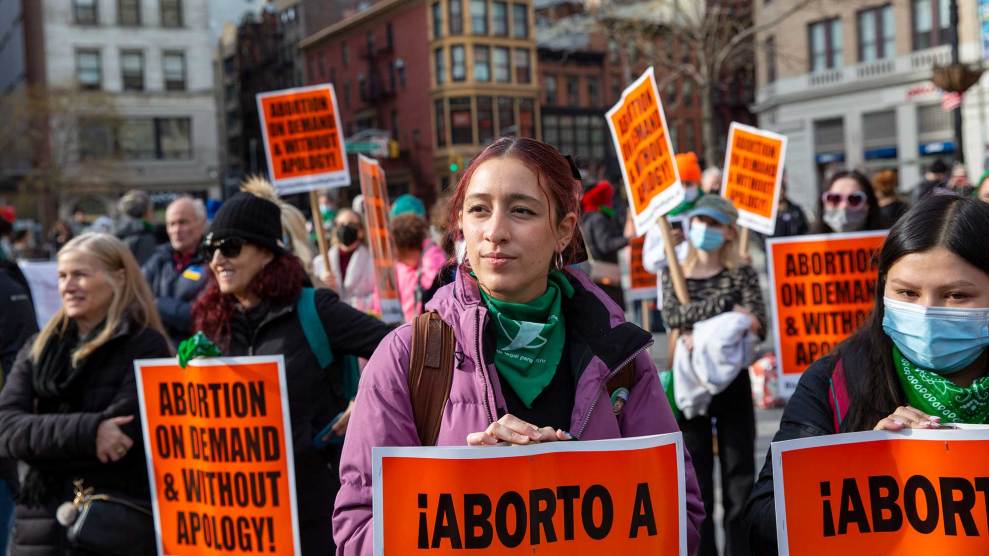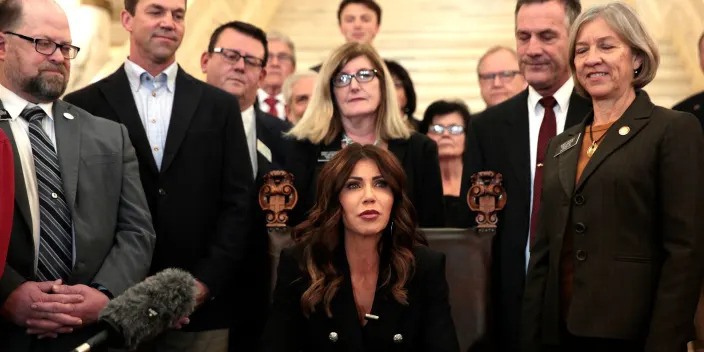She was forced to travel to a different state to have the termination
by JADE BIGGS

ELIJAH NOUVELAGEGETTY IMAGES
A 10-year-old rape victim, who was six weeks pregnant, was denied an abortion following the US Supreme Court's decision to overturn Roe v Wade. The ruling means there is no longer a nationwide right to terminate a pregnancy and individual states now have the freedom to make their own laws on abortion access.
The girl, who lives in Ohio, was ineligible to have an abortion in her own state in light of Roe v Wade being overturned and was forced to travel to Indiana for the procedure. Currently, abortion in Indiana is legal, but lawmakers are expected to bring in tighter restrictions later this month when the state assembly comes together.
"It’s hard to imagine that in just a few short weeks we will have no ability to provide that care," Dr Caitlin Bernard, an Indianapolis obstetrician-gynecologist, told the Columbus Dispatch. Bernard had treated the girl after a colleague in Ohio who works with child abuse victims called and asked for help.
Abortion providers like Bernard say they have seen a sharp increase in the number of patients, from the nearby states where such procedures are now restricted or banned, coming to their clinics for abortion.
The case has further reignited conversation in the US about abortion rights, and has forced anti-abortion political figures to address how the rights of women and girls – including abuse victims – will be balanced against abortion restrictions.

SOPA IMAGESGETTY IMAGES
Yet some anti-abortionists have seemingly deflected on the matter, with Republican governor Kristi Noem of South Dakota – where abortion is now illegal unless "necessary to preserve the life of the pregnant female" – telling CNN that the public should be "addressing those sick individuals [who] do this to our children" adding that "nobody’s talking about the pervert, horrible and deranged individual that raped a 10-year-old."
As for whether she would push to change the law in South Dakota if a similar case occurred, Noem said: "I don’t believe a tragic situation should be perpetuated by another tragedy. There’s more that we have got to do to make sure that we really are living a life that says every life is precious, especially innocent lives that have been shattered, like that 10-year-old girl."
When asked if the 10-year-old should have had the baby, the Republican replied, "every single life – every single life is precious. This tragedy is horrific. But, in South Dakota, the law today is that the abortions are illegal, except to save the life of the mother."
Although, Noem did not rule out that performing an abortion on the 10-year-old could be classed as protecting the life of the pregnant female. "Yes, that situation, the doctor, the family, the individuals closest to that will make the decisions there for that family."













